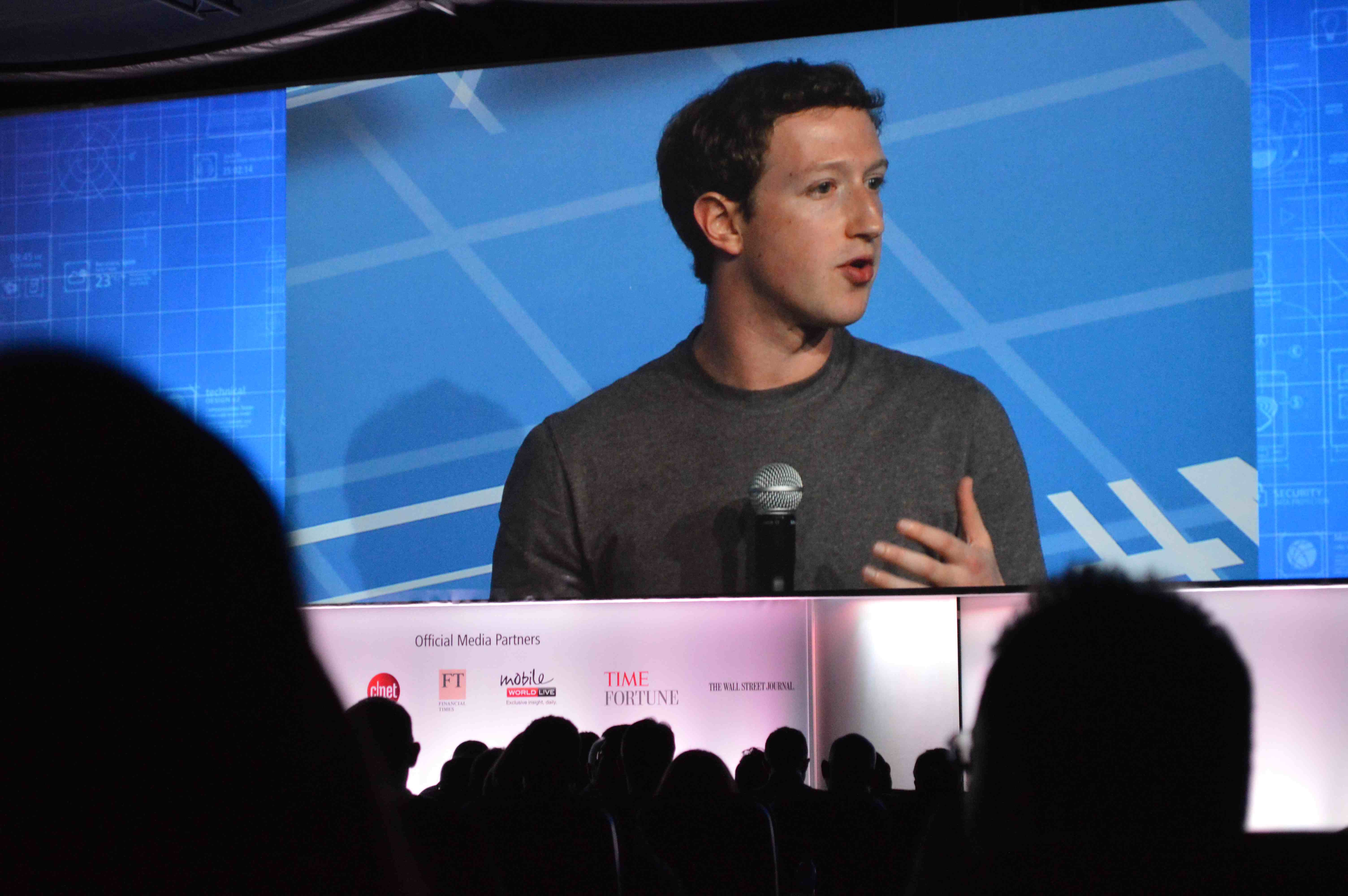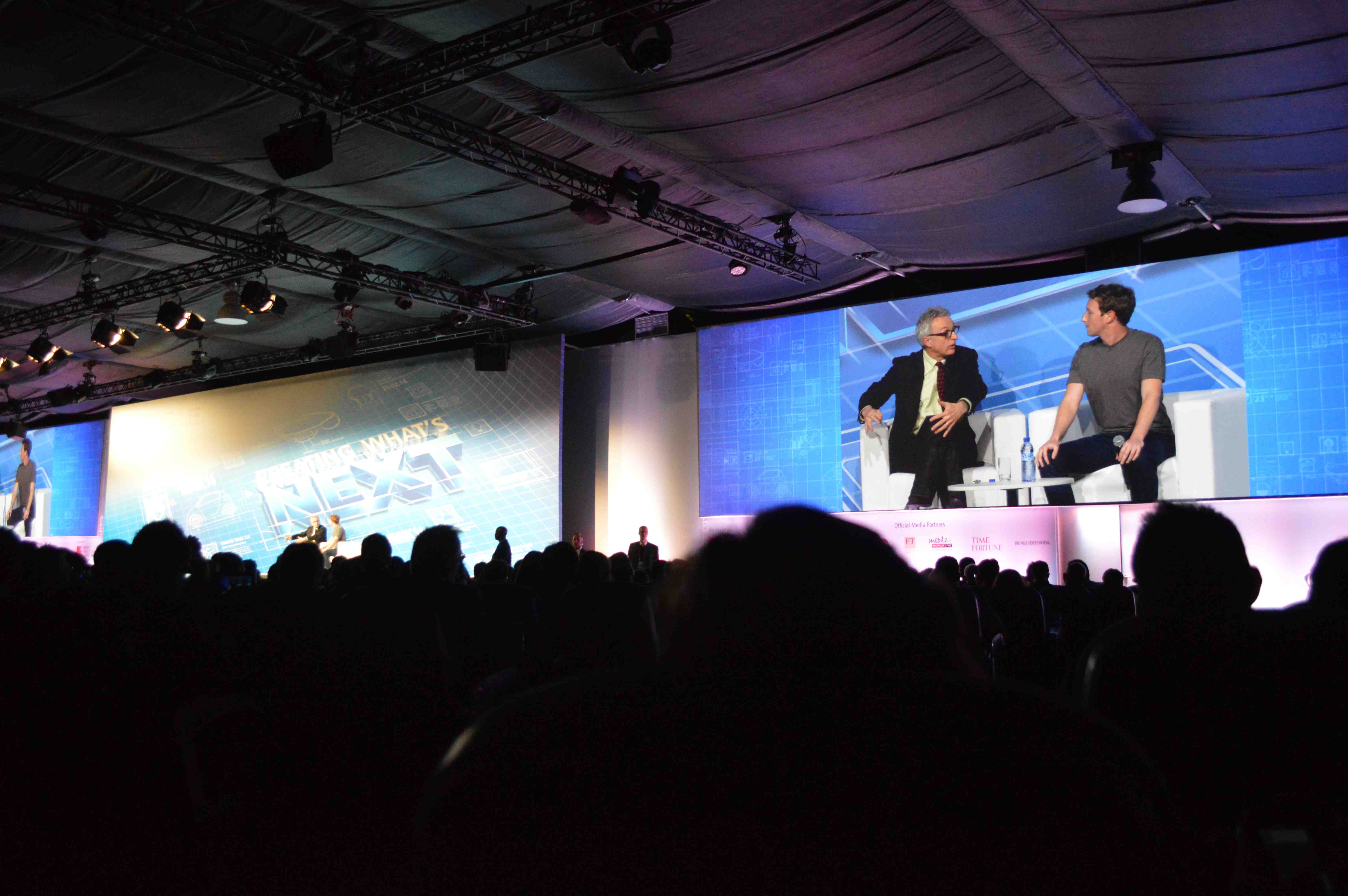One Young World Ambassador, Xenia Elsaesser, comments on the Mobile World Congress 2014.
The Digital Divide
The Internet and ICT is ‘crucial in increasing social welfare’ and ‘households with Internet have a higher educational performance’ notes Daniel Hajj, CEO of América Móvil.
Whilst the Internet is a tool of empowerment for many, it also widens social inequality with those offline at a greater disadvantage.
Concerns over the problem of digital inclusion have resulted in the emergence of a number of initiatives.
In a Facebook post last August, founder and CEO Mark Zuckerberg, delivered this bold claim:
[[[image-1 medium right]]]
'Connectivity is a human right'
This week at Mobile World Congress 2014, Zuckerberg developed this ambitious aim.
In a powerful and refreshingly slideshow-less speech, Zuckerberg proposed basic access to essential online services should be provided free of charge, analogous to 911 (sic) and other dial-up services.
Highlighting Facebook’s recent acquisition of WhatsApp (which allows real time messaging without having to pay for SMS) Zuckerberg spoke about his visionary idea, Internet.org.
Through a coalition of mobile phone companies and Facebook, Zuckerberg aims to bring the world online; connecting everyone, everywhere.
Commercially Viable
Zuckerberg argued this is commercially viable. The bandwidth required to deliver such services is very low, meaning minimal cost to operators.
Using an example of a partnership with Globe, providing basic services free of charge in the Philippines not only doubled Internet usage but also increased the number of paying subscribers by 25%.
The ‘freemium’ model thus has the demonstrated potential to ultimately profit operators.
Mixed Reactions
Twitter responses to Zuckerberg’s announcement varied. Many praised his social commitment, though sceptics questioned whether investment from operators to expand network reach was realistic.
Amid concerns about Facebook´s and WhatsApp’s privacy and security, cynics also grumbled the initiative is a publicity stunt -- a tool to expand Facebook’s market reach.
Even the interviewer, David Kirkpatrick, let slip some wit describing free access as a 'gate-way drug' to Facebook addiction.
[[[image-2 large]]]
Social Responsibility
Zuckerberg responded to critics with the reminder that most users with true advertising value – i.e money to spend - were already online. In other words, Facebook is not making short-term gains through this strategy; it is a more ambitious, far-sighted move.
The sceptics and the jealous may highlight Facebook’s play to monopolise users, but it is essential we take a broader social view.
Without doubt access to the Internet is what Jan Koum, founder and CEO of WhatsApp, described as ‘a fundamental basic resource.’ The Internet is vital for inclusive social progress and it is immensely positive that Mark Zuckerberg and others are using their visibility to draw attention to the issue.
Whilst digital technology can be a force for progress - enabling opportunity – in absence it is equally disabling.
As part of my work at Telefónica our Think Big social initiative focuses on empowering young people to survive in the digital world.
In demonstrating how a pressing social problem can be solved with a commercially viable business case, Zuckerberg is bringing the power of corporations on board to help societies move forward as one.


